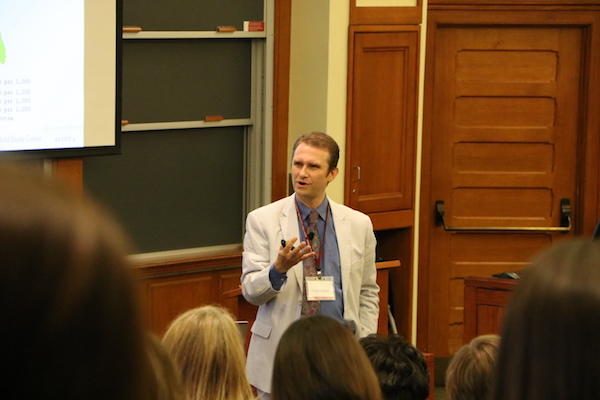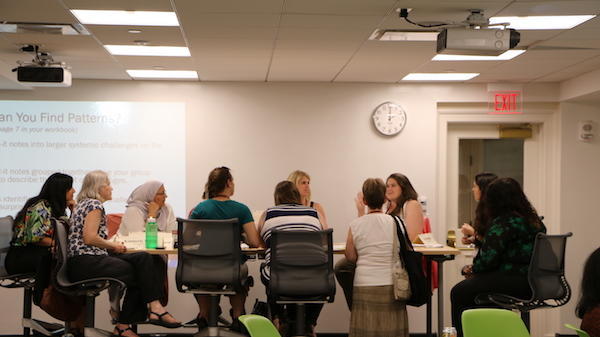2017 Science of Early Learning and Adversity: Daily Leadership to Promote Development and Buffer Stress
Inaugural Zaentz Academy Institute for Early Education Leaders
The Institute focuses on the latest research and proven strategies for fostering strong early learning environments that reduce stress, mitigate difficult behaviors, and support overall development.
Preschool expulsion is not a child behavior
The Saul Zaentz Professional Learning Academy kicked off this summer with its inaugural Institute for early education leaders, The Science of Early Learning and Adversity: Daily Leadership to Promote Development and Buffer Stress. Day one of the institute featured Dr. Walter Gilliam, director of the Edward Zigler Center in Child Development and Social Policy, and his research about stress in the preschool classroom and its impact on teachers and children.
“Preschool expulsion is not a child behavior. Its an adult decision,” said Gilliam when presenting about the setting-level factors that best predict preschool expulsion rates. Gilliam also discussed his research on teacher implicit biases and the strategies some communities are using to decrease their expulsion rates.
Classroom strategies for buffering stress
Dr. Amanda Williford, associate professor at the University of Virginia, presented her research on classroom strategies to decrease and respond to disruptive behaviors.
The session highlighted the importance of adult-child relationships, and the fact that even in high-quality classrooms, “access to high-quality interactions is not evenly distributed among students,” said Williford. To foster these critical bonds, Williford’s “Banking Time” intervention encourages students and teachers to get together for regularly scheduled, child-directed play sessions, which helps build trust and comfort.
The research also demonstrated the importance of encouraging pro-social behavior by providing positive reinforcement to young children.

